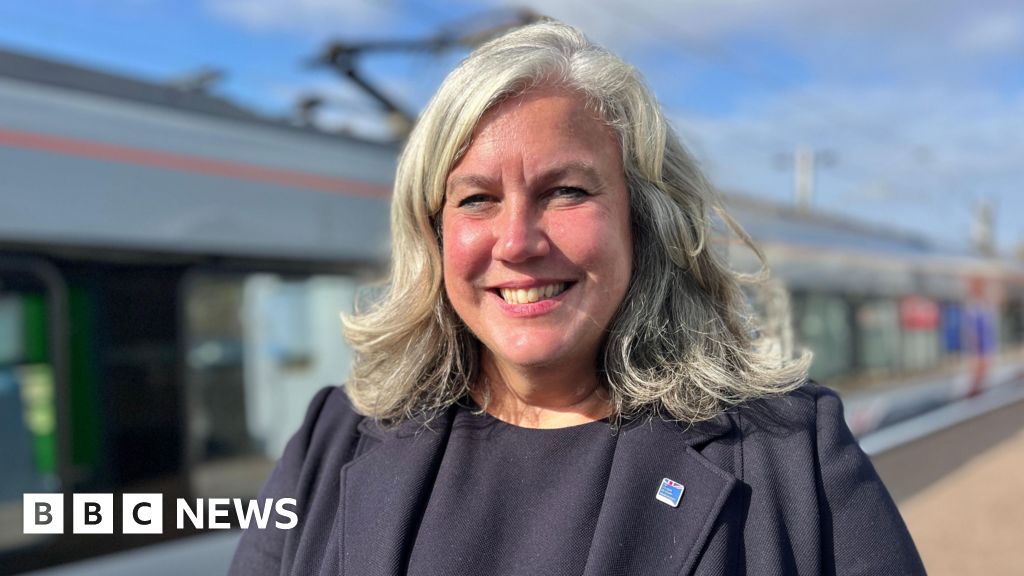Andrew SinclairEast of England political editor and
Ben SchofieldEast of England political correspondent
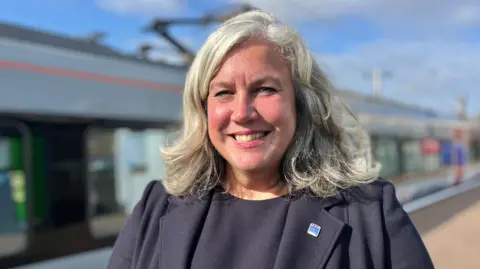 Martin Giles/BBC
Martin Giles/BBCThe transport secretary has vowed to “move heaven and earth” to deliver “value for money on the railways”.
But Heidi Alexander stopped short of promising cheaper fares for train passengers.
She was speaking ahead of the nationalisation of the East of England rail operator, Greater Anglia, on Sunday.
The company, which is among the UK’s best performing train firms, said passengers should experience the same levels of service.
Alexander, on a visit to Norwich station, said she wanted to “embed high-performing, reliable railways that people can depend on”.
There was also a “baffling array of different ticket types”, which she hoped nationalisation would help “simplify”.
“I do think we need to simplify fares, but I can’t make a promise that we can bring fares down in the short term because we’ve got to run a financially sustainable railway,” she said.
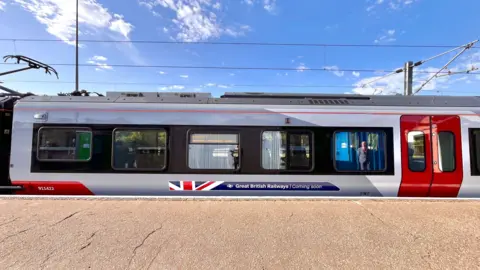 Martin Giles/BBC
Martin Giles/BBCLast week Greater Anglia, which handled 81.8m passenger journeys in 2024/25, was named Rail Operator of the Year at the National Transport Awards.
Almost 94% of its trains arrived within three minutes of their scheduled time last year.
The government said it would be “used as a benchmark for other operators” and would “share best practice and drive up standards” across the rail network.
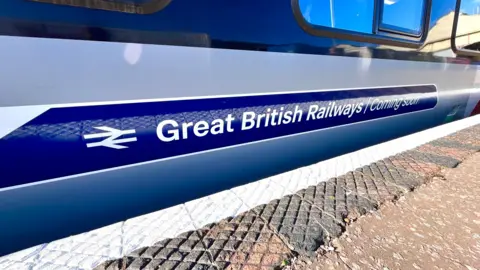 Martin Giles/BBC
Martin Giles/BBCGreater Anglia will eventually become part of Great British Railways, which the government plans to set up in the coming years.
The company runs trains from Cambridge, Ipswich, Norwich and Colchester into London, as well as the Stansted Express and services across the East of England.
The transport secretary said there was a “gap of about £2bn” between what the government “ploughs” into the railways and fare income from passengers.
“In the longer term, I would like to be able to deliver a more affordable railway but I’ve got to get the balance right between what the taxpayer is putting in to subsidise the railway – which is billions of pounds at the moment – and what passengers are paying,” she added.
She said the government would “move heaven and earth to make sure that people get value for money on the railways because I do recognise that prices can be high”.
But, she went on: “People need to know that they get a service that they can rely upon and that it’s going to be a high quality service.”
The Department for Transport (DfT) has said that nationalising all the current rail franchises would save an estimated £150m a year in fees paid to private sector operators.
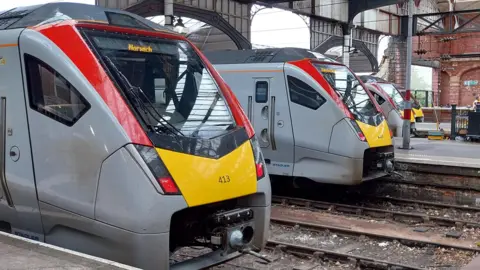 Owen Ward/BBC
Owen Ward/BBCAn integrated leadership team will bring together Network Rail Anglia, which is responsible for rail infrastructure like tracks and signals, with the operators Greater Anglia and c2c, which runs services in south Essex and was nationalised in July.
The DfT said that team would “increase collaboration and accountability, delivering improvements for passengers and freight users”.
But Jerome Mayhew, the Conservative MP for Broadland and Fakenham in Norfolk, told Sunday’s BBC Politics East that he was “really worried” about rail nationalisation and that “Labour has got the wrong analysis” and were “giving the wrong solution to the problems”.
Greater Anglia, he added, was a “really well-run private business”, which had invested in new trains.
The first nationalised Greater Anglia service on Sunday will be the 16:10 BST Stansted Express from Liverpool Street.
